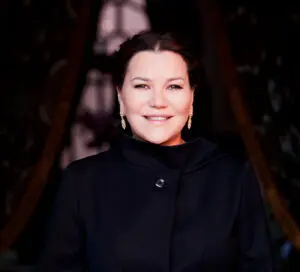Day: February 10, 2022
On Thursday, February 10, 2022, the Foundation for the Safeguarding of Cultural Heritage in Rabat organized a workshop by videoconference under the theme “Cultural Heritage and Citizen Participation“. The workshop provided guidelines for the implementation of consultation policies in long-term planning to ensure that heritage values and community identity are appropriately aligned with the development of our cities.
Convinced that effective consultation policies are the bedrock of the integrated heritage management model, national and international experts presented the principles and methods of consultation and citizen participation that will enable heritage stakeholders to develop a roadmap for action, opportunities for inclusion, dialogue, and capacity building in order to identify key values in their territories, develop visions, set objectives, and agree on actions to safeguard cultural heritage. These tools foster intercultural dialogue by facilitating mediation and educating communities on how to manage their histories, traditions, values, needs, and aspirations.
To this end, the agenda of this workshop was structured around the following two panels:
Share the required tools for managing citizen participation and to illustrate how community-based initiatives can significantly increase the effectiveness of the conservation of values and attributes in and around World Heritage sites.
Successful case studies of community involvement in safeguarding heritage through decision-making, research, restitution, and information gathering.
About the Foundation:
The momentum generated by His Majesty King Mohammed VI, may God assist him, for the conservation and promotion of cultural heritage across the Kingdom is part of an ongoing process and enduring approach. Placed under the Effective Presidency of Her Royal Highness Princess Lalla Hasnaa, the Foundation for the Safeguarding of the Cultural Heritage of Rabat follows this path.
“Rabat, Modern Capital and Historic City: A Shared Heritage” was inscribed on UNESCO’s World Heritage List in 2012, a testimony to the city’s universal and exceptional value. Indeed, its current profile is the result of a unique and fruitful dialogue between the ancient, Islamic, Hispano-Maghrebian, and European pasts.
This recognition is also the outcome of a proactive approach to heritage protection and a management plan that has coordinated efforts in terms of research, restoration, planning and development of the 348 hectares corresponding to the inscribed property.
This year has been particularly rich for the Foundation. Indeed, it has rolled out an ambitious action plan which, in addition to the multiple scientific meetings, awareness-raising activities for the general public, and analysis of the conservationstate of the cultural heritage, included the launch of the process to update the management plan of the inscribed property. Heralding future rehabilitation work and highlighting Rabat’s rich heritage, this new plan serves as a reminder that heritage preservation is also a matter of forward-looking vision.
